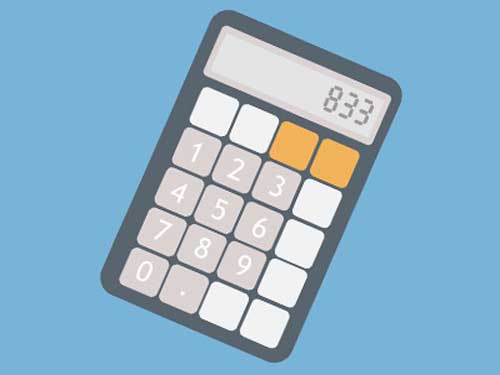Site Prices Update
Last Updated28th June 2022
All calculations on this site are based on current fuel prices, they are checked regularly and calculations are automatically updated.
The costs calculated based on these fuel prices should be regarded as 'good estimates', given that fuel prices vary in different parts of the county and at different time of the year.
The calculations also have different levels of accuracy depending on the nature of the calculation. For example calculating the energy use of a known power output TV is very easy compared to calculating the effect on energy savings when insulating a cavity wall.
Site Calculations
Set Your Own Prices
User PricesFor several of the fuel prices on this site you can now set your own prices and all the calculations on the site will adjust accordingly.
Set Prices
At Confused About Energy we aim to provide practical, impartial advice on all aspects of energy usage, climate change and ways to save money on energy bills.
All calculations on this site are based on current fuel prices they are checked regularly are automatically updated and were last changed on:-
28th June 2022
The costs calculated based on these fuel prices should be regarded as 'good estimates', given that fuel prices vary in different parts of the county and at different time of the year.
The calculations also have different levels of accuracy depending on the nature of the calculation. For example calculating the energy use of a known power output TV is very easy compared to calculating the effect on energy savings when insulating a cavity wall.
Site Calculations
| Electricity | £0.271 per unit (1 kWh) |
| Economy Electricity | £0.094 per unit (1 kWh) |
| Gas | £0.072 per unit (1 kWh) |
| Domestic LPG | £0.122 per unit (1 kWh) |
| Heating Oil | £0.104 per unit (1 kWh) |
| UK Grid CO2 Emissions | 0.233 kg per kWh used |
The main units used in this site are in the table below, For a complete explanation of power and energy Read More.
| Unit | Name | Detail |
|---|---|---|
| W | Watt | Unit of Power |
| kW | Kilowatt | 1000 watts |
| kWh | Kilowatt hour | Measure of Energy |
| L | Litre | Measure of Volume |
Site Units 17822
Site Calculations
Please use twitter to ask a question Message @@EnergyThinking
Throughout this site almost all calculations use the kilo Watt hour (kWh) as a unit of measure for energy.
The kWh was chosen as it is easy to relate to and is the standard measure for a unit of electrical energy on your electricity bill, i.e. 1 Unit = 1kWh. One kilo Watt (kW) is by the way 1000 Watts, and for completeness a Watt is a measure of power, which might be best described at the rate at which energy is transferred.
The kWh was chosen as it is easy to relate to and is the standard measure for a unit of electrical energy on your electricity bill, i.e. 1 Unit = 1kWh. One kilo Watt (kW) is by the way 1000 Watts, and for completeness a Watt is a measure of power, which might be best described at the rate at which energy is transferred.
such that:- total energy = power × time.
For example a 40W light bulb kept on all day uses 40W x 24h = 960Wh (Watt hours), or approximately 1kWh. or a 1000W electrical heater kept on full power for 1 hour uses 1000W x 1h = 1000Wh (Watt hours), or again 1kWh.
To be clear the kWh is used for all forms of energy not just electrical, including gas, petrochemical, and coal etc. You will often find the energy relesased on combustion of these substances quoted in joules or calories, all we have done is convert these numbers to kWh. Incidentally we have found that many of the quoted energy values on the internet for these materials are wrong, particularly on internet sites selling them, so please beware.























Comments and Questions